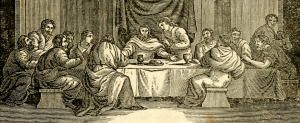A post is going around Facebook that has some people up in arms. It happens to be right in my wheelhouse as a space fan and a theology geek, so let’s take a look. Fair warning: this is a very long one.
The post was, as far as I can tell, originally posted by someone named “Dawn Marie,” whose bio reads “Jesus chaser🕊🤍☁️ Animal lover 🐶 Functional medicine + Self sufficient🌿 Medical freedom 🇺🇸”—which immediately brings up some huge red flags—and it leads with the following images: (click to enlarge)
Striking. Maybe? We’ll see. I’ll be using 📖 to refer to theological assessments and 💫 for astronomical ones, and grading each claim on a scale from ✅ to ⚠️ to 🛑. If I don’t know or can’t find the answer to something, I’ll try to be as honest as I can.
All I will say is: AMERICA..…REPENT!!!!
“Important info!
I’m not claiming to know exactly what all of this means, […]
📖⚠️. Press X to doubt. This is particularly funny because she begins with an assertion of what all of this means (“REPENT!!”) and continues thereafter to make even more assertions about what all of this means, but I’m fact checking her astronomical and theological statements, so let’s keep moving.
[…] but I think it is important enough for all of us to be aware that this is happening and pray for wisdom in this area. On April 8th this year, there will be an eclipse. One singular eclipse is pretty amazing […]
💫✅. All of this is true! I’m very excited about the upcoming eclipse, for which my home will be in the totality. Just nineteen more days!
[…] but this one is actually the last in a 3 part series that has SO much meaning behind it. […]
💫🛑. Not so much. This isn’t the “last,” or even part of a series of three. Due to the orbital dynamics of the Earth/Moon system, there are actually an average of about two eclipses per year; usually a little less than six months apart from one another. The April 8, 2024 eclipse will actually be the 51st of 224 eclipses in the 21st century; hardly an auspicious number. It will be the fourth of ten eclipses to cross the United States in that timeframe, and the second of five total eclipses. It’s actually shocking how much it’s not the third of anything here.
Maybe, if you wanted to play really fast and loose with the dates, you might say it’s the third eclipse to pass over the US in quick succession. But even that is tough to defend; there were eclipses in 2017, 2023, and 2024, which would make the upcoming one the third in twelve years, yes; but the one before 2017 was in 2012, which means that the 2017 eclipse should be a part of the previous series instead, right?
[…] It is important to know that God said that He would use the sun, moon and stars to communicate with us:
Genesis 1:14- “Then God said, ‘Let there be lights in the expanse of the heavens to separate the day from the night, and let them be for signs and for seasons and for days and years…” […]
📖⚠️. Whenever you see an ellipsis in a Bible reference, be wary. (I added an additional one in brackets so that you could see that it was pre-existing.) So what was she trying to cover up in the remainder of that passage? Genesis 1:15 continues the sentence: “…and let them be lights in the expanse of the heavens to give light upon the earth.’ And it was so.” Verse 15 makes clear that this isn’t intended as a method of communication, but of timekeeping and illumination; and while the Hebrew word translated “signs” here can also mean “omen” or “warning,” its use in Genesis is exclusively as a marker or a stamp of the covenant (Genesis 4:15, Genesis 9:12-13, Genesis 17:11). I think this is more likely God’s way of signing His work than communicating hidden truths to us; a royal seal of sorts.
Side note, I can’t tell what Bible version Dawn is using. Some of it reads like the ESV, but it’s not exactly right. Maybe she’s transcribing from a paper Bible (she seems like the type of person that might be distrustful of digital Bibles), but it’s odd enough that I’m planning to note whether she’s playing fast and loose with translations here.
[…] Luke 21:25 – “There will be signs in the sun, moon and stars. On the earth, nations will be in anguish and perplexity at the roaring and tossing of the sea.” […]
📖⚠️. This one has a little bit more interpretive backing behind it. The predominant use of the Greek word that’s translated as “signs” in Luke 21:25 does indeed carry the connotation of “omen” or “miracle” throughout the New Testament. However, we should see here a warning in trying to interpret things this way: in many cases the people asking for these signs are not believers, but Pharisees—within the account of the Gospels, the villains of the story—trying to get some sort of secret information or to discredit Jesus. So we should be wary of what we’re trying to do here.
Incidentally, she seems to be using the NIV here.
[…] So now that you know that God said that He would use the sun, moon and stars to communicate with us, let’s break down this 3 part eclipse series: […]
Assertions are not proof, Dawn.
[…] 1) With the path of this last eclipse, combined with the first 2 eclipses (one in 2017 and the other in 2023), it will create the Hebrew letter over America that is “Aleph Tav” and in Greek it is the “Alepha and Omega” – both means “The beginning and the end.” God said in Revelation 21:6 that He is the beginning and the end and this Aleph Tav is like His signature. Why would He use an eclipse to put His signature over America? […]
Ooh, we’ve got a double here: bad astronomy AND bad theology!
💫⚠️. 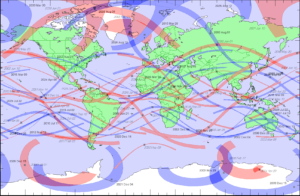 Okay, look. Any three intersecting lines will make a triangle, and the Paleo-Hebrew “alep” is basically just a triangle. But look at this map, overlaying all eclipses between 2000 and 2040: there are a lot of triangles. Are we saying that there’s an Aleph Tav over every single one of those? Is God marking Northern Brazil, or three different places in Africa? What about Australia, with its three overlapping Alephs? What did Iceland do to deserve that HUGE Aleph at the top of the map? There’s a little bitty one in Antarctica, is there some outpost of particular sin down there?
Okay, look. Any three intersecting lines will make a triangle, and the Paleo-Hebrew “alep” is basically just a triangle. But look at this map, overlaying all eclipses between 2000 and 2040: there are a lot of triangles. Are we saying that there’s an Aleph Tav over every single one of those? Is God marking Northern Brazil, or three different places in Africa? What about Australia, with its three overlapping Alephs? What did Iceland do to deserve that HUGE Aleph at the top of the map? There’s a little bitty one in Antarctica, is there some outpost of particular sin down there?
📖🛑. There’s a lot here, theologically, and none of it good for Dawn’s point. First, while God uses the Alpha and Omega to refer to Himself in the New Testament, that’s exclusively a Greek New Testament thing. He never referred to Himself as 𐤀𐤕 in the Bible; ΑΩ yes, but the Greek term is specifically used because He was identifying Himself as the holder of the sum of all knowledge: beginning and end, inclusive. But that’s not a particularly Hebrew idea; He identified Himself to the Israelites as 𐤉𐤄𐤅𐤄, which we transliterate “YHWH” or “Yahweh”—meaning “I Am,” or “He Who Is.” If God chose to use an archaic letter to sign His name on the Earth using the shadow of the moon, wouldn’t the Paleo-Hebrew yod (𐤉) or the Greek alpha (Α) make more sense?
Second, God doesn’t identify Himself using archaic words and terms. Every time He identifies Himself in the Bible, it’s using terms and words familiar to the people listening.
- He introduced Himself as “the God of Abraham your father” to Isaac, the son of Abraham;
- as “the God of Bethel” to his son Jacob, referring to the place where Jacob had worshiped Him; and later as “the God of your father;”
- as “I AM” to the people of Israel, through Moses;
- as “the Lord” to the people of Israel, when He was promising land to them;
…and that’s just in Genesis and Exodus alone. In a very real way, God is His own story, and He identifies Himself by pointing back to other parts of his story. “I’m the God who did that!”
Obviously this whole thing is heading toward an apocalyptic prediction, but let me just head that off at the pass right here and right now: God calls Himself kyrios theos (κύριος θεός)—”The Lord God”—in the book of Revelation.
[…] Let’s dig deeper:
2) He has used eclipses to warn nations of coming judgement so that the nation can repent of their sinful ways and come back to Him. This happened with the story of Ninevah. God told Jonah to go to the wicked nation of Ninevah and warn them about coming judgement. Jonah ran away from the assignment and while out at sea got swallowed up by a whale and was in the whale for 3 days. Jonah repented of running away so the whale spit him up. He then went to Ninevah and warned the people but there was something that also happened while he was warning the people…an eclipse came over the land. In the 19th century, ancient tablets were discovered that describe an eclipse called the Bur-Sagale eclipse where the totality of the eclipse landed right over Ninevah while Jonah was there preaching of the 40 day warning before the coming destruction. Because of this, the people realized that this was a sign from God that what Jonah was saying was true and they repented and God spared their nation.[…]
💫✅. The Bur-Sagale (or “Assyrian”) eclipse is generally associated with the eclipse on June 15 of 763 BC, which did indeed go over Assyria and its capital, Nineveh.
📖⚠️. While this could explain the Ninevites’ sudden change of heart, this is just speculation. The Book of Jonah is undated, though other sources in the Bible and elsewhere show that the timelines could line up; and the prophet Amos, who spoke around the same time, uses an eclipse to call Judeans to repent. But the book of Jonah doesn’t mention any astronomical event in its explanation of the repentance of Nineveh.
Further, if this was a sign to Nineveh, it wasn’t the only one. In that time, the Neo-Assyrian empire was ruled by Ashur-dan III, who essentially just spent his entire reign putting down revolts. There were also two epidemics of plague sweeping through the kingdom by the time Jonah would’ve arrived. But more importantly than either of those realities, the Assyrian people were already predisposed to see eclipses as portents of doom. God works upon the canvases of the people to whom He speaks; and our current cultural canvas context classifies eclipses as scientific curiosities, not omens.
[…] It is amazing how much American mirrors Ninevah. (If you don’t see it, you may be part of the problem.) […]
This u? “I’m not claiming to know exactly what all of this means…”
Anyway: 📖🛑. Since the point of the book of Jonah is Jonah’s obedience, we actually don’t learn a whole lot about Nineveh. About all we know is that they were “evil.” The book of Nahum also prophesies its destruction; but all that it offers by way of explanation is that innocent blood is shed, lies proliferate, and theft and idolatry abound. This is far from a specific indictment, and could easily be applied to pretty much any group of people over a large enough time. Is that enough to make it “amazing how much American [sic] mirrors Ninevah [sic]”?
[…] To make this even more clear, this last eclipse on April 8th will be going over 7 cities here in America called – yep you guessed it – NINEVAH! I honestly didn’t even know that we had any city here in the U.S. named that but here we are – with this eclipse going over these cities (and there will be an 8th one that it goes over also called Ninevah in Canada.)
Here are the cities:
🔺𝐍𝐢𝐧𝐞𝐯𝐞𝐡, 𝐓𝐞𝐱𝐚𝐬
🔺𝐍𝐢𝐧𝐞𝐯𝐞𝐡, 𝐌𝐢𝐬𝐬𝐨𝐮𝐫𝐢
🔺𝐍𝐢𝐧𝐞𝐯𝐞𝐡, 𝐈𝐧𝐝𝐢𝐚𝐧𝐚 (𝐭𝐡𝐢𝐬 𝐰𝐢𝐥𝐥 𝐛𝐞 𝐭𝐡𝐞 𝐡𝐢𝐠𝐡𝐞𝐬𝐭 𝐦𝐚𝐠𝐧𝐢𝐭𝐮𝐝𝐞 𝐨𝐟 𝐞𝐜𝐥𝐢𝐩𝐬𝐞 𝐌𝐚𝐠 𝟏.𝟎𝟐𝟑, 𝐭𝐡𝐞 𝐥𝐨𝐜𝐚𝐥 𝐭𝐢𝐦𝐞 𝐩𝐫𝐞𝐝𝐢𝐜𝐭𝐞𝐝 𝐟𝐨𝐫 𝐢𝐭 𝐭𝐨 𝐨𝐜𝐜𝐮𝐫 𝐢𝐬 𝐚𝐭 𝟑:𝟎𝟕 𝐏𝐌)
🔺𝐍𝐢𝐧𝐞𝐯𝐞𝐡, 𝐎𝐡𝐢𝐨
🔺𝐍𝐢𝐧𝐞𝐯𝐞𝐡, 𝐏𝐞𝐧𝐧𝐬𝐲𝐥𝐯𝐚𝐧𝐢𝐚
🔺𝐍𝐢𝐧𝐞𝐯𝐞𝐡, 𝐕𝐢𝐫𝐠𝐢𝐧𝐢𝐚
🔺𝐍𝐢𝐧𝐞𝐯𝐞𝐡, 𝐍𝐞𝐰 𝐘𝐨𝐫𝐤
🔺𝐍𝐢𝐧𝐞𝐯𝐞𝐡, 𝐍𝐨𝐯𝐚 𝐒𝐜𝐨𝐭𝐢𝐚 (𝐍𝐨𝐭 𝐢𝐧 𝐭𝐡𝐞 𝐔𝐒) […]
Wouldn’t naming your town “Nineveh” be a little bit…strange? I mean, it’s better than “Gommorrah,” but…
💫🛑. Actually, this is more of a geography debunk:
- The path of totality does not travel over Nineveh, Texas, missing it by nearly 30 miles. It’s also not an actual town; it’s so small that I can’t even get a Google Street View of it.
- The path of totality doesn’t come anywhere near Nineveh, Missouri; in fact, it’ll be on the complete opposite side of the state. And it’s not an actual town, either. It looks like it’s exactly one driveway off of a gravel road in a farming community called Connelsville that’s barely on the map. What did that poor farmer do?
- For the first time, we have an actual eclipse town! The eclipse actually does pass over Nineveh, Indiana…such as it is. I’ve actually been to Nineveh! Well, through it. On my way somewhere else. Nineveh is an “unincorporated census-designated place” with a population of less than 5,000. They filmed part of Hoosiers there. It’s cute.
Edit: Oh, forgot to add: it is indeed going to be a pretty good eclipse there, and the time is about right, but while I can’t find any data on its actual magnitude over that exact spot, the actual maximum magnitude for this eclipse will be 1.0566, not 1.023. (“Eclipse magnitude” is the ratio between the moon’s apparent size and the sun’s apparent size. A magnitude over 1 is a total eclipse.)  Again, the eclipse will pass over Nineveh, Ohio! But, once again, this isn’t really an actual town. We do have a street view this time, though. Cornfields again.
Again, the eclipse will pass over Nineveh, Ohio! But, once again, this isn’t really an actual town. We do have a street view this time, though. Cornfields again.- Hardly any bigger than the photo above, Nineveh, Pennsylvania is hours outside the path of totality. Its 735 residents are nowhere near the eclipse.
- Nineveh, Virginia isn’t a town (it’s a wide spot in US-52), and the eclipse doesn’t even touch the state of Virginia.
- As far as I can tell, Nineveh, New York is just a bridge and a church for the ~50 homes nearby. It’s not a town, and it’s not in the path of totality.
- Nineveh, Nova Scotia looks like it might actually be the most populous of the bunch, and even it isn’t a town. Oh, and the eclipse barely takes an edge off of Nova Scotia—an edge that’s nowhere near Nineveh.
It’s also worth noting the other Ninevehs that aren’t included, like the ones in California (a neighborhood in Los Angeles with a bigger population than everywhere else on this list combined) and the Solomon Islands (where it will be night during the eclipse in America). The path of totality won’t be anywhere near those Ninevehs.
So, 0/8. But wait—those places where there’s no totality. There’s still a partial eclipse there, right? Yes, but you could say that about the entire hemisphere. It’s definitely not drawing any alephs across that wide a region. Incidentally, the map with this post that charts a route through all of the Ninevehs that seems to suggest the eclipse will be right overhead? That map is extremely a lie.
Side note, what is with her formatting? I associate this pseudo-serifed unicode trickery with spam emails and phishing posts on Facebook. What’s going on here?
[…] Could this be that God is warning us just as He warned Ninevah? There have been many “Jonahs” in the past few years warning the nation that we need to repent and add in this sign above our heads – we can’t turn away from the fact that it is not a coincidence. […]
📖🛑. I mean, if by “the past few years” you mean “all of them”—as in, every year since the founding of this country—then yes, there have been many “Jonahs” warning Americans to repent. So, could this be another warning? Or a sign to confirm one of those warnings?
Well, first we need to clarify: repent of what? The “Jonahs” who have called Americans to repent have called us to repent of many, many things: our presence in the U.N., for instance. Premarital sex. Affirming gay marriage. Not affirming gay marriage. True prophetic calls to repentance need to be clear and unambiguous, but this is anything but. Be clear, Dawn. Don’t just be vague.
[…] But if you need more proof, let’s keep going…
2) The first part of this 3 part eclipse series was in 2017. The path of that eclipse went over 7 cities named Salem, which is short for Jerusalem.
🔺𝐒𝐚𝐥𝐞𝐦, 𝐎𝐫𝐞𝐠𝐨𝐧
🔺𝐒𝐚𝐥𝐞𝐦, 𝐈𝐝𝐚𝐡𝐨
🔺𝐒𝐚𝐥𝐞𝐦, 𝐖𝐲𝐨𝐦𝐢𝐧𝐠
🔺𝐒𝐚𝐥𝐞𝐦, 𝐍𝐞𝐛𝐫𝐚𝐬𝐤𝐚
🔺𝐒𝐚𝐥𝐞𝐦, 𝐌𝐢𝐬𝐬𝐨𝐮𝐫𝐢
🔺𝐒𝐚𝐥𝐞𝐦, 𝐊𝐞𝐧𝐭𝐮𝐜𝐤𝐲
🔺𝐒𝐚𝐥𝐞𝐦, 𝐒𝐨𝐮𝐭𝐡 𝐂𝐚𝐫𝐨𝐥𝐢𝐧𝐚
The mathmatical “chance” of there being 7 Salem’s with the first eclipse and then 7 Ninevah’s for the 3rd eclipse is unthinkable. But what about the 2nd part of the eclipse? […]
📖🛑. Actually, the Biblical city of Salem is just the home of Melchizedek; it might’ve been Jerusalem, but there’s no direct evidence of that.
💫🛑. I’m not going to go through every Salem here, but while the 2017 eclipse did indeed pass over Salem, Oregon, there’s no evidence of a place named “Salem” in Idaho or Wyoming, the Salems in Nebraska and South Carolina have a population under 200 put together, and with 41 communities named “Salem” in the United States it’s actually a bit surprising mathematically that only seven of them were crossed by the 2017 eclipse. Not to mention that two of the most notable Salems in the United States—Salem, Massachusetts and Winston-Salem, North Carolina—are notably outside the path of totality.
[…] 3) Perhaps the most striking piece of the 2nd eclipse is that the precise center-line of eclipse path exits the USA directly over Corpus Christi. Corpus Christi means the “Body of Christ” and is one of the only towns named that in the world!
But let’s go back to this upcoming eclipse and dig even deeper… […]
💫✅. The centerline of the 2017 eclipse did indeed pass through the center of Corpus Christi.
📖⚠️. While “Corpus Christi” does indeed mean “The Body of Christ,” it’s not named after Jesus’ earthly body, but the Catholic feast day celebrating it (Catholic feast subjects are weird, y’all). If you’re curious, it’s 60 days after Easter.
[…] 4) Jonah was giving a 40 day warning to Ninevah during the eclipse. If you look at our April 8th eclipse and fast forward 40 days then you will get to May 18, 2024 – the day before Pentecost. […]
So it’s 41 days before Pentecost. Don’t play rhetorical games here; God’s signs aren’t “almosts” or “just abouts.” When God speaks, no one paying attention can be confused.
[…] The history of Pentecost is that is the last Spring Feast that the Lord has given us (there are 4 in the Spring and 3 in the Fall). […]
📖🛑. Unlike feasts and festivals that actually were prescribed in the Bible, the celebration of Pentecost was never directly given by God.
📖🛑. Additionally, there are traditionally four or five liturgical feasts in most Western Christian traditions: Christmas, Easter, and Pentecost are usually agreed upon, with Epiphany, Good Friday, and Ascension being wild cards. In either case, none of them are in the fall; Christmas and Epiphany are solidly in the winter, Good Friday, Easter, and Ascension slide back and forth between winter and spring, and Pentecost slides back and forth between spring and summer. Orthodox Christians have twelve feasts, as I understand it, spread more or less evenly throughout the year. But I have no idea where she’s getting this seven number.
[…] This is the day that the Lord sent the Holy Spirit down to all those who have accepted Christ. We are told that the “Restrainer” (many believe this is the Holy Spirit) will be removed before the Tribulation – could it be that this is a warning for that? I’m not sure as that is a worldwide event and this eclipse will be just over North America but it is something definitely to think and pray about for more clarity and wisdom. No matter what, there are too many things lining up for it to not be nothing and so my job is to get the information out to you all so that you can at least be aware of these signs that God is giving us so that you can pray about it. […]
📖🛑. Ok, this is a little wonky, but I think it’s an important distinction: Pentecost was the day that the Lord sent the Holy Spirit down to all those who were gathered. Early Christians had no concept of “accepting” Christ, only of “following” Him, and the outpouring of the Holy Spirit came upon about 120 followers of Jesus who were gathered together in community after His ascension. Whether or not “accepting” Christ is a helpful way to express the event of salvation is something for people smarter than me to discuss, but I don’t think it really is.
📖⚠️. The identification of 1 Thessalonians 2’s “restrainer” as the Holy Spirit is heavily contested (as, to her credit, Dawn acknowledges). Tagging the Holy Spirit with this role is fairly dispensationalist in nature.
💫⚠️. The eclipse’s land coverage is indeed only over North America, but most of its path is actually over the ocean. It begins over the Pacific, nearly at Samoa, and ends over the Atlantic, 2/3 of the way to Europe.
💫🛑.  Technically speaking, the “too many things lining up” are as follows:
Technically speaking, the “too many things lining up” are as follows:
- The Sun
- The Moon
- The Earth
And I hope, for all our sakes, it’s in that order.
🛑. This is just a normal fact check. Dawn is not a journalist or theologian, she is an influencer. “Her job” is not to get any information out to anyone.
[…] But let’s keep going…
5) From the start of this 3 part eclipse to the end, it will be 7 years. God uses numbers a lot to communicate with us, and 7 has a ton of meaning. A few examples are – He created the world in 7 days, there will be a 7 year tribulation, 7 is used for completion, etc. […]
💫🛑. As noted before, it’s actually kind of surprising how not a 3-part anything this is. But even if we grant her premise, it’s actually only been 6 years, 7 months since the “first” eclipse.
📖⚠️. There’s not really any evidence that God communicates with us using the number seven. At least not before the fact.
📖✅. Seven does indeed come up a lot in Scripture. Its meaning is generally associated with perfection.
📖⚠️. The tribulation described in Revelation (and elsewhere) isn’t explicitly stated to be seven years; that’s a dispensationalist view, and isn’t universally accepted among even the Evangelical community, let alone Christianity as a whole.
[…] 6) Going back to how this correlates with Jonah & Ninevah’s story -at the time of this eclipse, there will be another sign in the sky…it will take place under the constellation, Cetus, which is the whale constellation! […]
💫🛑. Cetus isn’t a whale, it’s a sea monster.
📖🛑. Jonah wasn’t swallowed by a whale.
📖🛑. While constellations and a zodiac existed in ancient Israel, there’s little to no evidence in the Bible of God using them to communicate with His people. Constellations and horoscopes are the domain of astrology, not theology.
💫🛑. Cetus is practically always in the sky in the Northern hemisphere. It’s huge.
[…] And not only will it pass through the 8 cities in North America named Ninevah, it will also pass through Jonah, Texas! Speaking of other towns that it will pass through, these are some of the other city names that it will go right over:
🔺Rapture, Indiana
🔺Williamston, Kentucky – this is where the Ark Encounter is located. The Ark Encounter is a full size replica of Noah’s Ark.
🔺Eagle Pass, Texas – where we are having so many border issues. […]
💫🛑. Oh, are we doing geography again? No, the Eclipse will not go over Williamstown, Kentucky or the Ark Encounter. Rapture, Indiana has a population of one as of 2011. And the southern border of the United States is 1,954 miles; of course the eclipse will be going over it.
[…] 🔺And the point where it crosses the 2017 eclipse to mark the center of the X is an area in southern Illinois called Little Egypt. What is even more fascinating about this is that Little Egypt is sandwiched in between 2 other cities called Alpha, Kentucky and Omega, Illinois – both having the 2017 eclipse come over their cities. […]
💫🛑. Yes, Southern Illinois is called Little Egypt—but all of it is. If the path of totality went over Illinois at all, it would go over Little Egypt. Everything south of St. Louis is “Little Egypt.”
💫🛑. This is laughable: Okay, yes, there is a town in Kentucky named Alpha (another unincorporated community, not a city, though this one is big enough to have a post office). It is not in the path of totality, and it also was not in 2017. And while there is a township in Illinois called Omega, it’s definitely not a city; it will be in the path of totality next month, but it wasn’t in 2017. Interestingly, there’s a town near Omega Township called Salem; I’m surprised Dawn didn’t jump on that.
So how small is this “sandwich?”
It’s 93 miles from Carbondale to Omega, and 314 miles from Carbondale to Alpha. It’s “sandwiched” the same way Philadelphia is sandwiched between New York and Washington. It’s “sandwiched” the same way you are sandwiched between your nearest artisanal bakery to the east and the bread aisle at your nearest supermarket to the north.
Pretty airy sandwich, if you ask me.
[…] Furthermore, the intersection of the 2017 and 2024 solar eclipses occurs directly over the New Madrid Fault Line, a major seismic zone. An earthquake along this fault line could potentially destroy the U.S., making it one of the most perilous fault lines in the country. I have no idea if this will happen or not, but there are too many things here that are all literally lining up to not share with everyone. […]
 💫✅. The New Madrid Fault Line is in fact a major seismic zone, and it is does indeed run through New Madrid, Missouri (which is in the path of totality). But…
💫✅. The New Madrid Fault Line is in fact a major seismic zone, and it is does indeed run through New Madrid, Missouri (which is in the path of totality). But…
💫⚠️. …the Reelfoot Rift actually stretches nearly 150 miles southwest from the southern tip of Illinois into Missouri and then on under Arkansas. Further, there has not been a major geological event in the NMSZ since 1968. In addition…
💫🛑. …there’s no evidence or even suggestion that it could “destroy the U.S.” A team of researchers evaluated the effects of a 7.7-magnitude earthquake caused by a simultaneous rupture of all three segments of the New Madrid fault line and found that it would likely cause the most expensive natural disaster in the United States, heavily damage major US cities in 11 states, potentially destroy St. Louis and Memphis, and displace over seven million people; but as tragic as this would be, it would not “destroy the U.S.”
[…] 7) One more interesting fact is that there are 2,422 days in between the 2017 eclipse and the 2024 eclipse. If you look up 2422 in Strong’s Concordance, an Bible concordance that has every word of the KJV, takes us to Exodus 1:19 which says,
“𝐓𝐡𝐞 𝐦𝐢𝐝𝐰𝐢𝐯𝐞𝐬 𝐚𝐧𝐬𝐰𝐞𝐫𝐞𝐝 𝐏𝐡𝐚𝐫𝐚𝐨𝐡, “𝐇𝐞𝐛𝐫𝐞𝐰 𝐰𝐨𝐦𝐞𝐧 𝐚𝐫𝐞 𝐧𝐨𝐭 𝐥𝐢𝐤𝐞 𝐄𝐠𝐲𝐩𝐭𝐢𝐚𝐧 𝐰𝐨𝐦𝐞𝐧; 𝐭𝐡𝐞𝐲 𝐚𝐫𝐞 𝐯𝐢𝐠𝐨𝐫𝐨𝐮𝐬 𝐚𝐧𝐝 𝐠𝐢𝐯𝐞 𝐛𝐢𝐫𝐭𝐡 𝐛𝐞𝐟𝐨𝐫𝐞 𝐭𝐡𝐞 𝐦𝐢𝐝𝐰𝐢𝐯𝐞𝐬 𝐚𝐫𝐫𝐢𝐯𝐞.”
Why would this be of any significance? […]
Ya got me, Dawn. Why?
📖🛑. 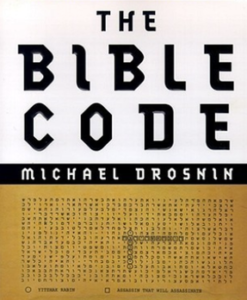 We’re deep in the weeds now. This process of calculating days, going to that word number in a specific Bible concordance, and then following the reference to that specific verse is a level of divination that’s right up there with Michael Drosnin’s critically-panned 1997 book The Bible Code. It’s basically Bible roulette. But, to be clear: there is no theological basis for this whatsoever. Dawn may as well be throwing a dart at an open Bible here; just because she wrote a date on that dart doesn’t mean anything.
We’re deep in the weeds now. This process of calculating days, going to that word number in a specific Bible concordance, and then following the reference to that specific verse is a level of divination that’s right up there with Michael Drosnin’s critically-panned 1997 book The Bible Code. It’s basically Bible roulette. But, to be clear: there is no theological basis for this whatsoever. Dawn may as well be throwing a dart at an open Bible here; just because she wrote a date on that dart doesn’t mean anything.
[…] Well, to me, it reminds me of how Jesus said that His return would be like a woman in labor with the signs of His coming growing stronger and closer together. We are at a point in history where we are seeing all of the signs that He gave us happening before our eyes. In fact, we are even seeing things that will happen during the tribulation get setup now. If we are seeing those things being setup now, that must mean that we are super close to it actually happening. […]
📖⚠️. Christians don’t even all agree that the tribulation is in the future. It may have already happened. Dispensationalist theology was considered fringe until last century, and “all of the signs” are happening before our eyes at roughly the same cadence they have been for the past two thousand years.
[…] Going back to God saying that He uses the sun, moon and stars to show us signs – and then Jesus saying that the signs of His coming will be like a woman in labor, well this information leading us back to Exodus 1:19 explaining that the Hebrew women have labor fast is so interesting to me! Could we be on the brink of the rapture and tribulation!? I don’t know exactly when it will happen […]
[…] but Jesus did tell us that we would know the season and I do believe that we have been in that season for the past few years and are pushing closer and closer to it! […]
📖⚠️. This is probably Dawn’s interpretation of Matthew 24:32-35, wherein Jesus likens the coming of the End Times to the coming of summer. But just a few verses prior, we see Jesus saying, “So if anyone tells you, ‘There he is, out in the wilderness,’ do not go out; or, ‘Here he is, in the inner rooms,’ do not believe it. For as lightning that comes from the east is visible even in the west, so will be the coming of the Son of Man.” (Matthew 24:26-27, NIV) The end times won’t be a secret or a code hidden only to the super-faithful; they’ll be apparent to everyone.
[…] So what do you do with all of this information?
It is no secret that this world has gone mad and everyone knows that there is something happening behind the scenes that feels really uncomfortable. If you have that feeling, you are right! […]
Well, which is it, Dawn? Is it no secret, or is it a feeling that only a few have? This is such a vague claim, I can’t even evaluate whether it’s true or not.
[…] There is a major push for things to happen that were predicted to happen over 2,000 years ago. Most people seek their understanding in the wrong place though. They look to the news and the world to guide them; however, these sources will only bring more questions, not answers. It causes people to live in fear, anxiety and depression. However, Jesus didn’t want us to live that way. He gave us the information so that we would know what is happening when we see these things. […]
Well, which is it, Dawn? Is it your job to give people the news, or will the news just bring more questions, not answers?
📖✅. Jesus did not want His people to live in fear, anxiety, and depression; and He did tell us about the future so that we would not need to. “I have told you these things, so that in me you may have peace. In this world you will have trouble. But take heart! I have overcome the world.”
That said…I find this message of hers at odds with the entire rest of the post. The amount of dread washing over every word is palpable.
[…] The first piece of living in His knowledge is accepting that God sent His son, Jesus, to die for our sins and on the 3rd day, Jesus rose from the grave and conquered death. The second piece is to repent to God of your sins and turn away from your sins. […]
📖⚠️. Look, I’m a Reformed guy, so I’m going to see words like “accept” and immediately be triggered. I’ll just leave it at that.
[…] Most churches only teach how God loves you but don’t teach repentance anymore […]
The rest of this is basically an altar call.
[…] and that is a HUGE part of your faith. Jesus said that there will be many who come to Him and say, “Lord, Lord, I knew you.” But because they didn’t repent of their sins and seek Jesus’ ways instead of their own, He will reply, “Get away from me, I never knew you.” We cannot just live however we want without any consequences. Even little children understand this concept, but it has been lost on most adults. This is why Ninevah was going to see destruction – because they were a self-serving, sinful nation – just like America is today. You can’t change the heart of this nation, but you can change your heart and lead your homes to do the same. Third, pray for wisdom in these areas.
I know this has been incredibly deep but just like Proverbs 25:2 says, “It is the glory of God to conceal a thing, but the honor of kings is to search out a matter.” This sign in the sky will be right over your head in just a few weeks – will you have the eyes to see what it really means?” […]
Well, at least she identified an actual sin for Nineveh.
Oh, I guess I can also do one more fact check, and end on a high note:
📖✅. Repentance is, indeed, a huge part of faith.
[…] A huge thanks to these sources:
https://eclipsewitness.com/american-eclipse-judgment
Vincent James
And again my red flags come out. “eclipsewitness.com” reproduces all the problems I’ve outlined above and then some, with a smattering of pro-Trump rhetoric sprinkled over the top. He also seems to have a couple of books to sell, and I would guess he really wants to move those within the next three weeks or so. And Vincent James is a super far right “influencer” on Xwitter; he turns the “nationalist” knob up to 11. Any “information” or “source” he provides should be viewed with skepticism and fact-checked extensively, because it’s likely to be cherry-picked to align with a worldview.
• • •
Side note: I’ve also seen a version of this shared with Matthew 12:38-39 on it, suggesting that the eclipse is the “sign of Jonah” that Jesus mentioned, and that it further foretells judgement on a “crooked generation.”
📖🛑. I implore those people to read literally the very next verse, where Jesus actually explicitly tells you what the Sign of Jonah is—namely, being buried for three days— and then explicitly explains that sign by saying that He’s the one who will be buried for three days.
It’s not a warning of future judgement upon America. It’s a foretelling of his own future crucifixion. That one already came true.
• • •
At the end of the day, God isn’t playing some coy game with Christians in America. He’s not hiding the truth about the Rapture in arcane machinations and revolutions of moon and sun. That’s not the way He has ever operated in the past, and no amount of manufactured “evidence” is going to change that.
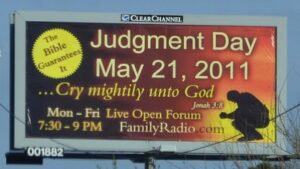 Putting aside the fact that dispensationalism—and the rapture with it—is a widely discredited theology that only gained traction in the United States because of racism, any prediction of the end times has only ever been a guarantee that the time predicted probably isn’t when they’re going to begin. Remember Harold Camping? Billboards went up all over the place with his assertion that judgment day would be on May 21, 2011, and a seal that said “The Bible Guarantees It.” We’ll be celebrating the thirteenth anniversary of that day in a couple of months.
Putting aside the fact that dispensationalism—and the rapture with it—is a widely discredited theology that only gained traction in the United States because of racism, any prediction of the end times has only ever been a guarantee that the time predicted probably isn’t when they’re going to begin. Remember Harold Camping? Billboards went up all over the place with his assertion that judgment day would be on May 21, 2011, and a seal that said “The Bible Guarantees It.” We’ll be celebrating the thirteenth anniversary of that day in a couple of months.
Predicting judgment day is a pastime that never goes well. Please pray, if you’re a praying person. And if you’re intrigued by the claims of Jesus, I encourage you to investigate them. But don’t worry about the end times prophecies.
Just put on your eclipse glasses and enjoy the show. Dread not, fear not; it is given to us to enjoy this experience, not run in terror at it. Take heart and have peace: God is a good God, and He will take care of us.
Eclipse Day update
I’m seeing an additional set of…let’s say “a set of sentences” come up a lot recently, so I thought I’d do a last-minute fact-check:
Here’s everything happening on April 8th:
• Rare Solar Eclipse […]
💫🛑. As noted above, there are two solar eclipses every year on average. There’s nothing rare about this one, except that it happens to be going over our heads in a swath of the Midwestern USA.
[…] • Cosmic Explosion […]
💫🛑. I don’t know exactly what they’re calling a “Cosmic Explosion” here, but if it’s the T Coronae Borealis nova, we don’t actually have an exact date on when we’ll see it (could be tonight, more likely it’ll be the middle of the summer), and it actually happened 3,000 years ago.
[…] • Devil Comet […]
💫🛑. Comet 12P/Pons-Brooks has been in the sky since last year. Its closest approach is in June. It probably won’t even be visible today, because it’s very dim.
💫🛑. It’s only called the “Devil Comet” because it briefly had an outburst that looked like horns.
[…] • CERN is being turned on first time since 2022 […]
💫🛑. CERN’s LHC was activated and achieved a stable beam on Friday, April 5.
💫🛑. It was also run in 2023 and 2022.
[…] • Allegedly states are preparing for state of emergency and deploying National Guards […]
⚠️. Some states are preparing for a state of emergency due to huge crowds. Indianapolis, where I live, will have up to a million people showing up over the next couple of hours—nearly doubling the population of the metro area. That’s going to probably cause a lot of cell phone outages, food shortages, and heavy traffic. It’ll be like a major sporting event, but across entire states, and it’ll only last about four minutes.
[…] • NASA Launching 3 Rockets at the eclipse “to study” it. NASA is calling it Project Serpent Deity […]
💫🛑. The NASA sounding rocket experiment is actually called Atmospheric Perturbations around Eclipse Path (APEP). Apep was indeed a serpent deity in Egyptian mythology, but the name has nothing to do with that.
💫🛑. This same experiment was done during the 2023 eclipse. Nothing happened except an eclipse and some information gathering.
[…] • Bible Prophetic signs to repent […]
📖⚠️. As noted above, there have been prophets warning people to repent since approximately the creation of the universe. That’s nothing new. Earthquakes and wars happen all the time. There are no actual new or unusual Biblical signs currently.
[…] • Eclipse will awaken two broods of Locusts(Cicadas) that have not been awake together since 200 years[…]
🛑. Locusts aren’t cicadas.
⚠️. The cicadas aren’t coming out in the midwest until mid-April.
⚠️. Brood XIX was last out 13 years ago, and brood XIII was last out 17 years ago. While it’s true that they haven’t both been out at the same time in about 200 years, periodic infrequent events happen simultaneously all the time. The confluence is nothing to write home about.
• • •
Merry Eclipsemas! Enjoy the show!




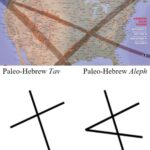

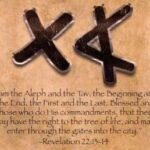
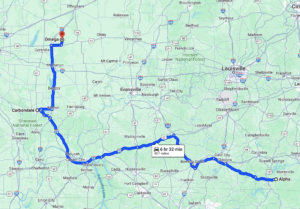



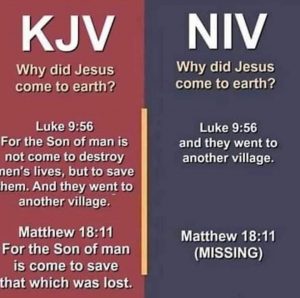
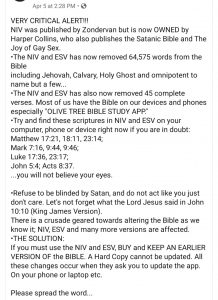
 Ben Reed’s sermon at
Ben Reed’s sermon at 